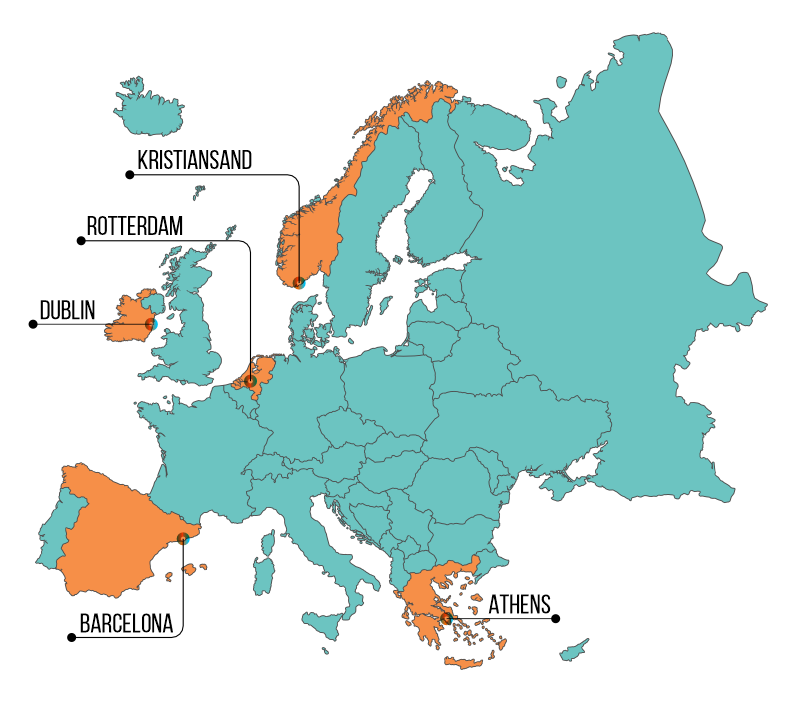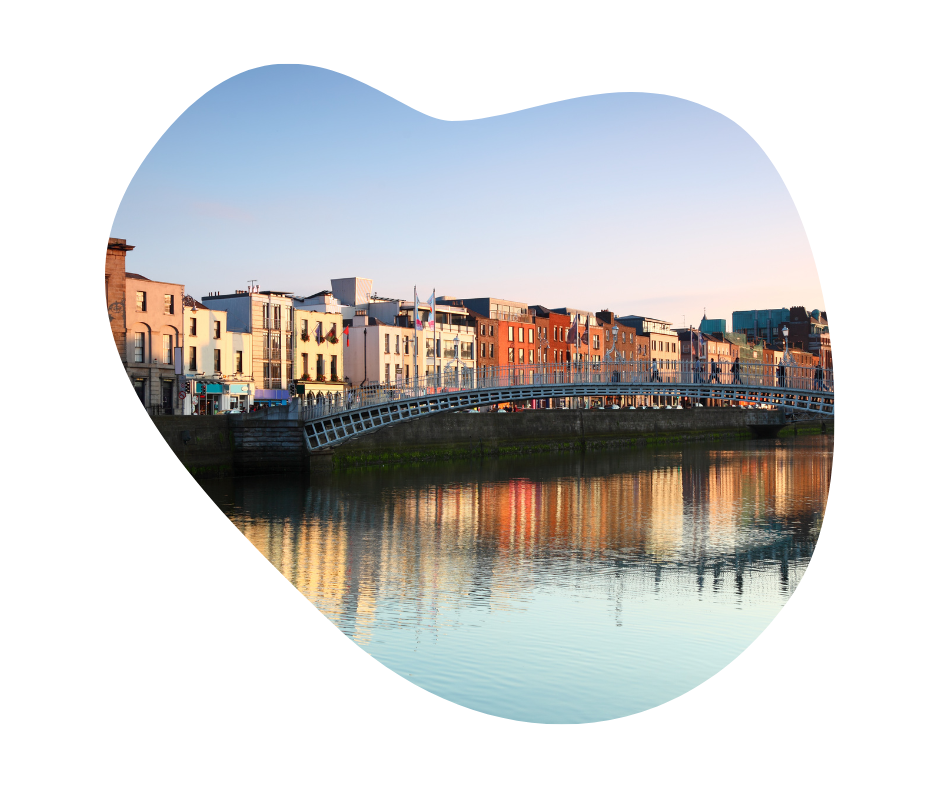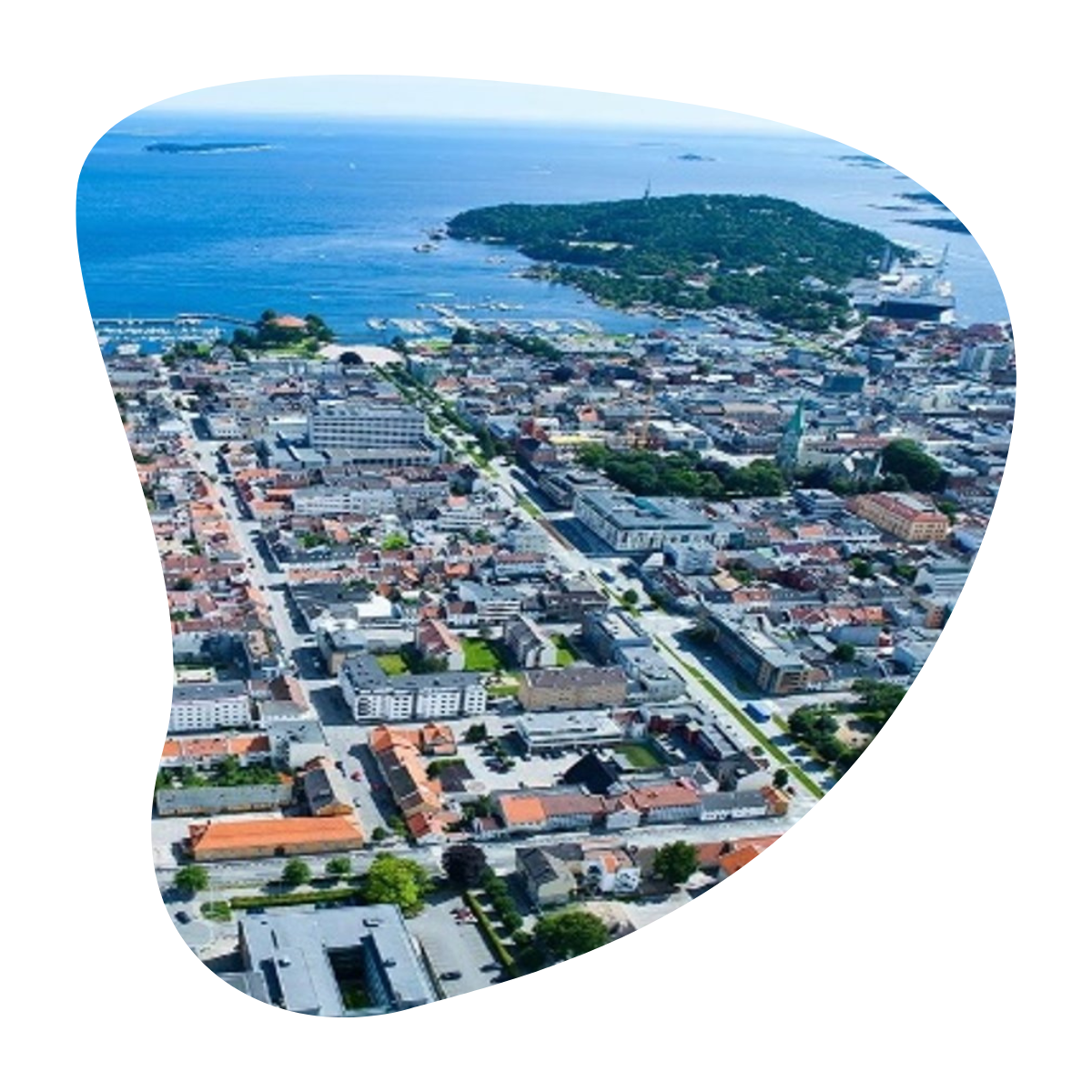Frontrunner cases are existing COs in 5 cities and they will work in close collaboration with the project from the start. They will participate in the co-design of the CitiObs approach by providing inputs based on their own experience, implementing the first versions of CitiObs methods and tools and helping to fine-tune them. The co-created knowledge, tools and methods will be packaged in the CitiObs Knowledge Platform and made easily accessible via the CitiObs Cookbook.
The city of Athens is part of the region of Attica in Greece. It is a city that already has moderate Air Quality and is facing extreme heat waves but also flood risks. Furthermore, noise pollution is evident all around. As a city, it has already been part of other Citizen Science projects (i.e. SCENT, CompAIR etc) and is one of the Frontrunner cases for the CitiObs project.
Overlooking the Mediterranean Sea, and famous for Gaudí and other Art Nouveau architecture, Barcelona is one of Europe's trendiest cities in culture, fashion and cuisine. It combines the creativity of its artists and designers with respect and care for local traditions.
Traffic is at the core of a variety of societal problems ranging from road safety, air, noise, and light pollution, to public health risks, to the liveability of our communities. However, obtaining objective traffic counts and localised data about air pollution can be difficult, because local authorities usually only have the resources to monitor a limited number of roads. University College Dublin is organising the CitiObs project in Dublin and will empower local communities with sensors and skills to monitor traffic and air pollution in their neighbourhoods and with tools to analyse traffic data.
Rotterdam is the second largest city and municipality in the Netherlands. Rotterdam is Europe's largest seaport and a major logistic and economic centre. Rotterdam is diverse, with the demographics differing by neighbourhood. In 2022, it had a population of 655,468 and is home to over 180 nationalities.
Situated in the south of Norway by the sea, Kristiansand is the sixth-largest municipality by population in the country. The city is an attractive industrial hub with more people moving there every year. The municipality places great emphasis on sustainability and inclusiveness with initiatives such as ‘A City for Everyone’, where all the citizens can participate.
The Alliance cases will be COs of selected urban geographical areas with specific environmental interests. They will onboard in December 2024 and through a mutual learning process, will apply and further enhance the CitiObs approaches and tools. Following guidance from the first version of the CitiObs Cookbook on the Knowledge Platform and via peer learning with the Frontrunners the Alliance COs will help to fine-tune the CitiObs tools, approaches and guidance for the second version of the Cookbook.
The Fellow cases are the COs that need reassurance that “it works”. They will onboard in June 2025 and will have the opportunity to learn and advance based on the CitiObs guidance and tools available in the CitiObs Knowledge Platform and from following the implementation process and the obtained results in Frontrunner and Alliance Cases.







